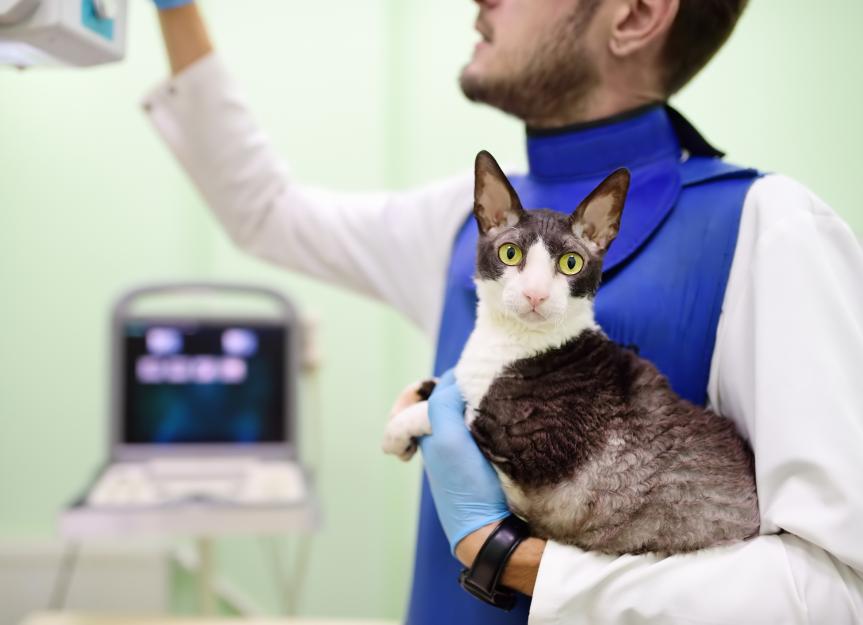
When it comes to our cat mates, their ability to hide pain or illness is almost legendary.
But that property, while deeply rooted in its instincts, makes it particularly difficult to detect the early signs of serious diseases such as cancer. The truth is that cancer is not uncommon in cats, and it can develop silently until it is more advanced. The good news? There are ways to come in front of it.
Early discovery can save lives. And today more tools are available than ever to help you and your veterinarian remain proactive about your cat's health. Here is what every cat parent should know about cancer surveys and why they play so much.
Key dealers
- Cancer is common in cats, and early detection through routine screening can significantly improve treatment options and results.
- Views are particularly important for older cats, some breeds and those with chronic inflammatory conditions.
- Subtle changes such as weight loss, care habits or behavior in the litter can signal early illness – even if your cat acts healthy.
- Proactive veterinary visits and monitoring of your cat at home are critical tools for catching cancer early for your cat.
What is cancer screening for cats?
Cancer Screening is a proactive approach to identifying cancer in cats or early signs of it before the symptoms become serious. Although it may sound scary, cancer survey for your cat is not something to fear, it is something to embrace as part of routine health care, especially for the elderly or risky cats.
Here's what you can expect during a CAT cancer screening:
-
Initial exam: Your veterinarian starts with a thorough physical examination, palpating (feeling) for any abnormal lumps, shocks, signs of discomfort or other irregularities.
-
Diagnostic testing: Although routine blood work such as a CBC (complete blood number) and biochemistry profile is common, it is important to know that these do not directly detect cancer, but they can raise red flags.
-
Advanced screening tools: If your veterinarian suspects something abnormal during the physical examination, they may recommend imaging (X-rays, ultrasound), fine needle aspiration or advanced diagnostics such as biopsy or cytology.
Cancer surveys are not just for sick cats. Veterinarians can recommend them:
-
For cats with unexplained weight loss, appetite changes or behavioral changes such as lethargy, hide, poor care or changes in litter habits
Does my cat need to be screened for cancer?
It is always worth asking your veterinarian.
Not every cat will need a cancer screening, but having the conversation, especially when your cat ages, can help catch early signs before they become more serious.
Some cats may have higher risk, including:
-
Some breeds, such as Siamese, which may have a higher predisposition for some cancers
If you are unsure of your cat race, invest in a CAT DNA test help determine possible health problems linked to specific breeds.
And even if your cat seems good, subtle characters may go unnoticed. These subtle characters that you may notice at home may include:
Remember that if something is felt by your cat's health, talk to your veterinarian.
Why early cancer discovery for cat issues
When cancer is found early on, treatment options expand and the results are often improved.
Early discovery can lead to:
-
Less invasive treatments such as targeted radiation, less invasive surgery, oral chemotherapy or immunotherapy.
Unfortunately, signs of cancer in cats are often subtle. Unlike dogs, which can show more dramatic symptoms, cats tend to hide pain or pull quiet, changes that can be mistaken for normal aging. That is why vigilance and proactive care are so important.
Cancer screening tests for cats: where we are today
While cancer examination for cats is not as advanced as for dogs, the field develops.
Current cat diagnostic tools include:
A biomarker test that can be performed early, before they conduct more expensive diagnostics, can serve as a valuable bridge, which increases participation in preventive care while supporting previous intervention.
A new study published in Veterinarian and comparative oncology Explored biomarkers for early cancer discovery in cats, which produced promising preliminary results. Cell -free DNA (CFDNA) is one of the biomarkers studied in cats that are detected in the blood as a result of cell death.
While several companies develop at home early detection tests, it is important to continue with caution and ensure that all products you consider to be supported by peer-reviewed research and approved by your veterinarian.
How to set your cat for success for early discovery
Many cat parents still avoid routine veterinary visits if they are not visibly ill, which makes it difficult to justify costly diagnostics such as blood work and imaging in obviously healthy animals. But taking action early and staying at the top of meetings can save money and stress along the line.
So here you can better manage your cat's health:
-
Schedule regular wellness tentor, especially for cats over 7 years, and consider strongly semi -annual visits for seniors.
-
Stay observant at home and mark subtle changes in behavior, appetite, weight, litter boxes or energy.
-
Ask your veterinarian about screening, especially if your cat is older, a high -risk breed or has a medical history of concern.
Being proactive when it comes to your cat's health does not mean living in fear, that means giving your cat the very best chance in a long, healthy life. Talk to your veterinarian, stay curious and keep learning. For in terms of cancer, knowledge really is power.

